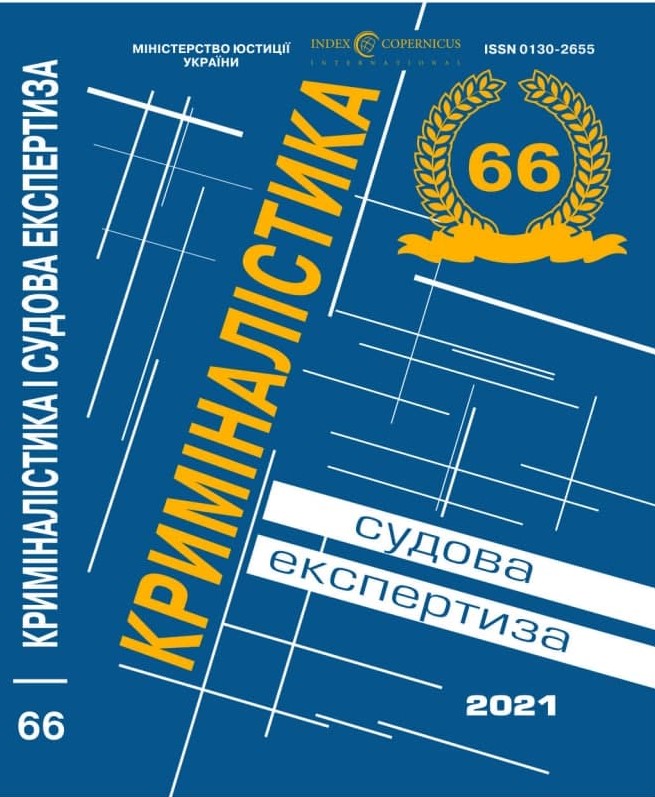
DOI: https://doi.org/10.33994/kndise.2021.66.30
А. Starushkevych
Methodological problems of historical periodization are considered, in particular, the historical and chronological aspect of the “methods of investigation” of criminal offenses. It is concluded that in order to study the process of the emergence, formation and development of “investigation methods”, it is advisable to develop a historical periodization, which would provide for the division of such a process into segments (periods, stages, stages) reflecting the qualitative state of the object under study.
It is not enough to consider the process of formation and development of investigation methods as “biography”, that is, through the work of individual scientists or scientific schools, it is more successful and profound to study the origins, prerequisites, the process of formation and development of the subject under study using elements of the activity approach, taking into account changes in needs , subjects, conditions, means, algorithms of actions on individual subjects studied (in our case, “methods of investigation”) at certain variable time and local intervals. And also taking into account the general historical and cultural contexts, combining with the principles of “stadiality”, “polyvariance” and “civilizational discreteness” generally recognized in historical science.
The periodization of the emergence, formation and development of “investigation methods” must meet certain requirements: 1) rely on common principles for dividing the time tape, taking into account the object and subject of research, its goals and objectives; 2) the criteria for identifying periods must be scientifically grounded and take into account the periodization used in science (in particular, historical); 3) periodization should have as clear boundaries as possible, which are usually marked by events that were most important in the historical process; 4) the criteria of division, which became the basis of periodization, do not exhaust all the tendencies and patterns of the investigated “methods of investigation”, therefore, such periodization usually has certain cognitive limitations, and this fact must be taken into account.
The study of the historical aspect of “methods of investigation” should involve two main approaches. The first one is to consider the process of development of “methods of investigation” and an idea of them in the classical periods of history: prehistoricity, antiquity, the Middle Ages, early modern times, modern times, modern times, taking into account the elements of “total” and “local” periodization. The second approach provides for the identification of the stages of the emergence and development of “investigation methods”, taking into account the degree of development of forensic knowledge, as well as the formation of forensic science as an “organized science” (the formation of its sections, in particular forensic methods, the emergence of forensic scientific schools, the differentiation of science into separate theories and teachings and the like).
Key words:method of cognition in forensic science, investigation method, forensic periodization, historical and chronological aspect, teaching about methods of investigation, investigation of criminal offenses, history of forensic science.










